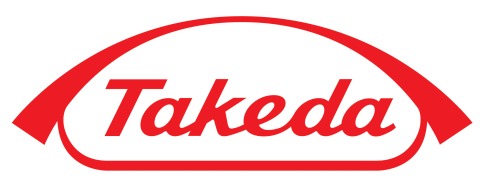
Osaka, Japan & Cambridge, Mass., United States:
– Updated ICLUSIG Label will Prove Practice-Changing, Expanding Indication to CP-CML Patients with Resistance or Intolerance to At Least Two Prior Tyrosine Kinase Inhibitors (TKIs) –
– Approval Based on Data from the Phase 2 OPTIC Trial, Which Evaluated Response-Based ICLUSIG Dosing Regimens in CP-CML –
– New Dosing Regimen in CP-CML Optimizes Benefit-Risk Profile, Providing Efficacy and Improving Safety –
Takeda Pharmaceutical Company Limited (TSE:4502/NYSE:TAK) today announced that the U.S. Food and Drug Administration (FDA) has approved the supplemental New Drug Application (sNDA) for ICLUSIG® (ponatinib) for adult patients with chronic-phase (CP) chronic myeloid leukemia (CML) with resistance or intolerance to at least two prior kinase inhibitors. The updated label includes an optimized, response-based ICLUSIG dosing regimen in CP-CML with a daily starting dose of 45 mg and, upon achieving ≤1% BCR-ABL1IS, dose reduction to 15 mg. This dosing regimen aims to maximize benefit-risk by providing efficacy and decreasing the risk of adverse events (AEs), including arterial occlusive events (AOEs).
“The FDA’s approval of this sNDA is a major milestone for the CML community. Though chronic-phase CML is often manageable, many patients still experience poor long-term outcomes and could benefit from a third-generation TKI earlier in their treatment journey,” said Teresa Bitetti, President, Global Oncology, Takeda. “ICLUSIG is proven to be effective for many patients with resistant disease, and its use at the critical moment can lead to meaningful outcomes for these patients. We are excited about this updated label and believe it will help address gaps in care for patients with resistant or intolerant chronic-phase CML by optimizing treatment with ICLUSIG.”
The sNDA approval is based on data from the Phase 2 OPTIC (Optimizing Ponatinib Treatment In CML) trial, as well as five-year data from the Phase 2 PACE (Ponatinib Ph+ ALL and CML Evaluation) trial.
The OPTIC trial included patients with CP-CML whose disease was highly-resistant to their immediate prior TKI, the majority of whom (65%) did not achieve a response greater than complete hematological response (CHR) on immediate prior therapy.At 12 months, 42% of 88 patients utilizing the newly approved response-based dosing regimen (45 mg to 15 mg) achieved ≤1% BCR-ABL1IS, the primary endpoint of OPTIC, and at a median follow up time of 28.5 months, 73% of these patients maintained their response. In these patients, 13% experienced an AOE of any Grade, 7% experienced Grade 3 or higher. Risk factors such as uncontrolled hypertension or diabetes should be managed, and caution should be exercised when treating patients with active or substantial history of clinically significant, uncontrolled cardiovascular disease.
“CML can be difficult to treat, particularly when patients have experienced resistance or intolerance to two or more TKIs. The revised indication allows physicians to consider ICLUSIG earlier in a course of treatment for chronic-phase CML patients, when it might provide the potential for the greatest benefit,” said Jorge Cortes, MD, Director of the Georgia Cancer Center. “As evidenced by the updated label, response-based dosing of ICLUSIG may allow patients to achieve the desired benefit that we know ICLUSIG can provide while reducing the risk for arterial occlusive events, a concern of physicians and, therefore, an important aspect of chronic-phase CML management.”
Data from the OPTIC and PACE studies were presented virtually at the 56th American Society of Clinical Oncology (ASCO) Annual Meeting, the 25th European Hematology Association (EHA) Annual Meeting and the 62nd American Society of Hematology (ASH) Annual Meeting.
Disclaimer: This content is distributed by Business Wire India.



